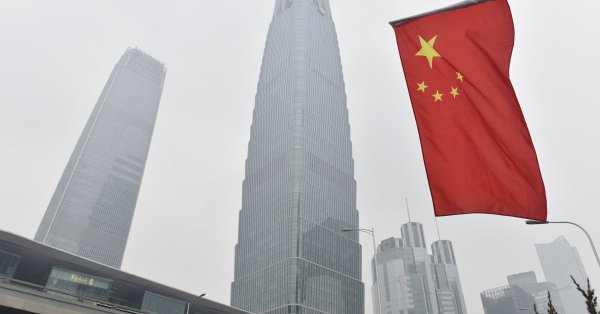Shanghai Composite Index nears 4-year low amid trade tensions

- Country:
- China
China's benchmark Shanghai Composite Index dived to near four-year lows on Thursday, joining a global equities rout after a tech sell-off battered Wall Street overnight.
Investors sold across the board amid a confluence of factors, including rising interest rates in the United States, a heated Sino-U.S. trade battle as well as IMF warnings about global financial stability and growth risks.
The Shanghai Composite plunged more than 6 per cent before recouping some ground to end the day down 5.22 per cent at 2,583.46 points, levels not touched since Nov. 25, 2014. It was the index's worst day since Feb. 25, 2016.
The blue-chip CSI300 index, meanwhile, tumbled 4.8 per cent to 3,124.11 points, its lowest level since July 2016.
Steven Leung, sales director at brokerage UOB Kay Hian, said the impact of the U.S. equity sell-off and trade war concerns were weighing on stocks and would endure across Asia.
"We haven't really seen such a big downturn in U.S. stocks for quite some time. Markets are not sure how long this will continue for," he said.
"The market is also worried that U.S.-China relations will get even worse."
In Hong Kong, the Hang Seng Index closed down 3.5 per cent at 25,266.37 points, its lowest level since May 19, 2017, and the index's largest daily percentage fall since February 6.
Tech stocks, which were caught in the trade war crossfire last week, suffered again on Thursday. Companies including HNA Technology, TDG Holding, and Yihua Lifestyle Technology, were down by the daily maximum of 10 per cent.
The smaller Shenzhen index and the start-up board ChiNext Composite index were also crunched by big losses, down 6.45 per cent and 6.3 per cent, respectively.
"Unless you withdraw from stocks entirely, you'd want to go for more defensive stocks, like public utilities," Leung said.
Shares in infrastructure firms from China's western region bucked the downward trend. The shares rallied after Chinese President Xi Jinping called for the launch of the planning and construction of the Sichuan-Tibet railway.
The stock of Tibet Tianlu, principally engaged in construction and mineral exploration, jumped near 7 per cent.
One Shanghai-based trader expects the market will find some support given it has been losing altitude over several months, while U.S. stocks are falling from a high point.
"Fund managers will find certain stocks very cheap," he said.
However, there are risk factors for mainland stocks as a China-U.S. trade war continues to hurt the revenues of exporters, which will, in turn, weigh on the major indices, he added.
The Hang Seng China Enterprises Index, which tracks Hong Kong-listed Chinese companies, closed down 3.4 per cent at 10,092.52 points.
The Hang Seng sub-index tracking tech firms lost 7.17 per cent.
Tencent Holdings Ltd, the most actively traded stocks in Hong Kong, was down 7.1 per cent, making the company the fourth-worst performer in the Chinese enterprise's index. The plunge took Tencent to HK$267.91, its lowest close since May 19, 2017.
The index measuring price differences between dual-listed companies in Shanghai and Hong Kong stood at 123.
A value above 100 indicates Shanghai shares are pricing at a premium to shares in the same company trading in Hong Kong, and vice versa.
There was net selling of mainland shares to the tune of about 3.5 billion yuan through the connect scheme linking Hong Kong and Chinese markets.
(With inputs from agencies.)










